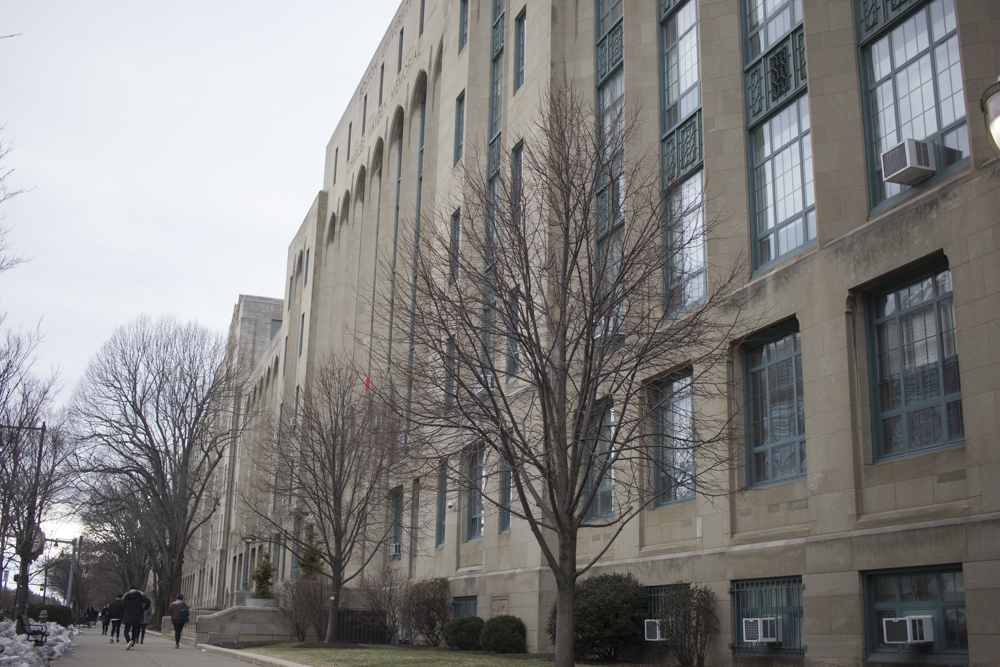
A new interdisciplinary doctoral program, Urban Biogeoscience and Environmental Health, will be introduced to Boston University in the fall. The program will involve various departments in the Graduate School of Arts and Sciences and the School of Public Health to enable participating students to address the challenges of a growing urban population.
The new program will be funded primarily by a five-year $3 million grant from the National Science Foundation, said Pamela Templer, the program’s director. The grant proposal was submitted in February 2017 and granted in July.
This program was developed in response to statistics from modern studies which show that half of the world’s population lives in cities, Templer said. This proportion is predicted to grow in coming years, meaning that more people will have to face the inherent problems of living in urban settings.
People living in cities often face greater levels of air and water pollution, as well as extreme weather events like heat waves and storm surges, Templer said. Complex environmental challenges like these require proper training to combat, said Jonathan Levy, an SPH professor of environmental health.
“Addressing these challenges requires diverse areas of expertise, including interdisciplinary technical knowledge and the ability to communicate effectively,” Levy wrote in an email.
The work that participating graduate students will do will enable them to tackle the major environmental problems that cities face by taking a research-oriented community perspective, Templer said.
“The program fuses Biogeoscience and Environmental Health, with an emphasis on data analysis, field research methods, and engagement and communication with policy makers, the private sector, and the broader community,” Templer wrote.
Boston is not exempt from the list of cities facing environmental and health-related threats. Climate change, the opioid epidemic and housing issues all contribute to the current and future state of the city. GRS Dean Ann Cudd said she thinks it’s important for BU students to learn how to handle these problems.
“Boston is an important city facing lots of interesting climate issues from rising water levels to effects of global warming and carbon emissions,” Cudd said. “It’s a really interesting area, and it’s great for BU to become involved in this.”
Cudd said the program’s main purpose is to integrate climate science into the public sphere, specifically in educating the public on how urban pollution affects people’s health.
“The idea is to study urban climate change and effects on public health and as a result of the urban climate change issues, and then also be able to speak and write about that in ways that will affect public policy,” Cudd said.
Students in the program will be participating in four workshops in addition to taking courses in biogeoscience, environmental health and statistics. Workshops include Biogeoscience & Environmental Health Research Methods; City of Boston: Policy, Governance, and Politics; and Science Communication and Responsible Research Conduct.
Templer said each student will complete a semester-long internship with the Boston city government or a government entity from another city, the private sector, or a non-governmental organization. Students will also conduct dissertation research.
Urban Biogeoscience and Environmental Health overlaps with a similar existing program called Neurophotonics, which is also funded by the NSF, Templer said. Neurophotonics will overlap in funding with the new program for at least four years, as the two programs are collaborating.
“We are already working with their faculty and staff to create synergies across our two programs,” Templer wrote. “We are working hard this spring and summer to plan the program, including courses, workshops, internships, and more before the students begin in the fall semester.”
Cudd said she believes this new program will have meaningful results for participating students and the city itself.
“These NSF-funded Ph.D. grants are really important for allowing our faculty to work across disciplines to train the next generation of Ph.D. students in interdisciplinary studies that address real global challenges,” Cudd said. “The global challenge of climate change and environmental health are really important ones.”
Isabel Owens contributed to the reporting in this article.























































































































